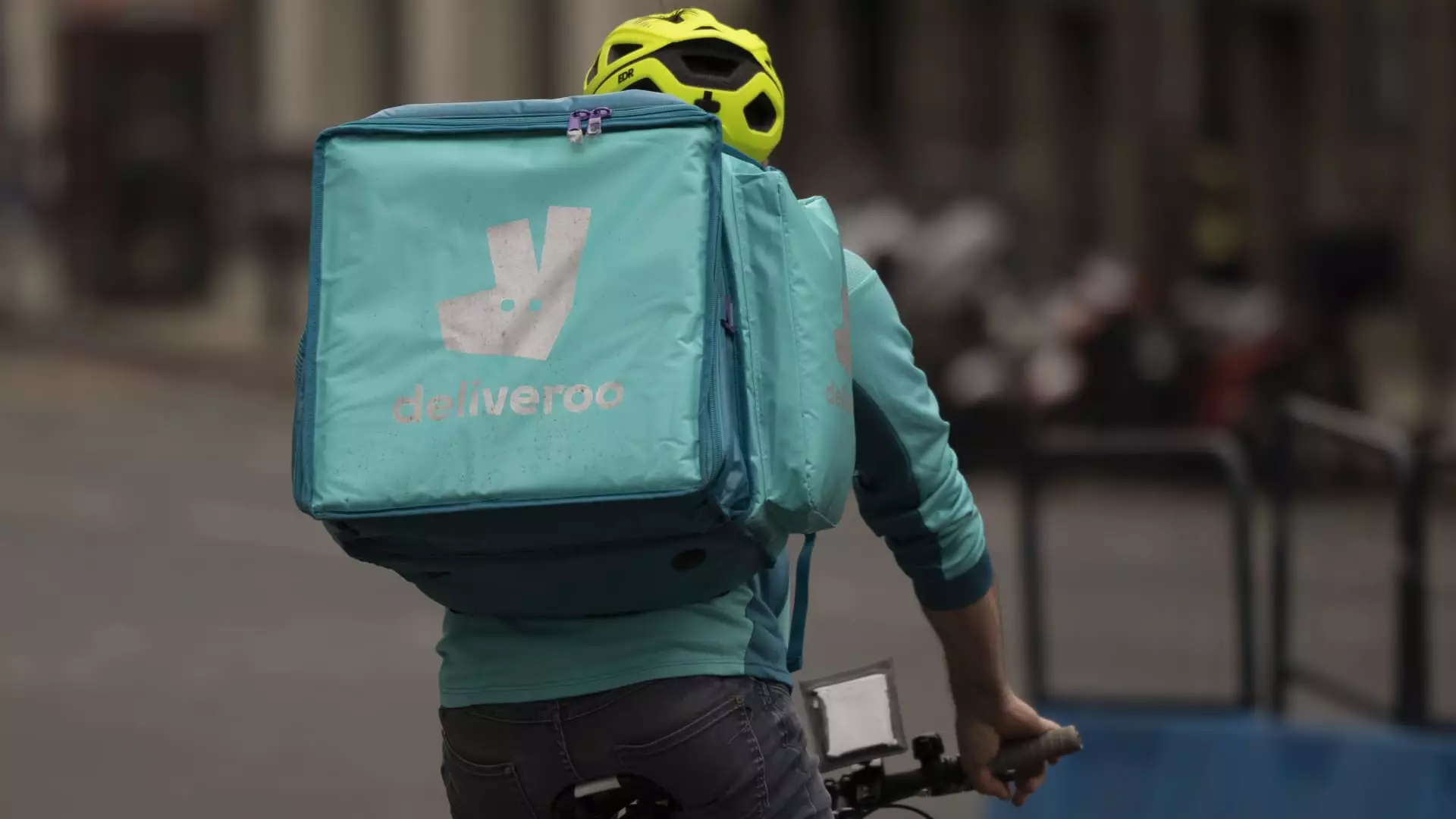The distressing journey of Deliveroo, a once-cherished British food delivery service, has taken a dramatic twist as it agrees to a takeover from the American giant DoorDash for an eye-popping £2.9 billion ($3.9 billion). This acquisition comes at a time when Deliveroo had already plummeted from the heights of being a market darling to a company that struggled to justify its earlier valuation. The deal values Deliveroo at 180 pence per share, reflecting a 44% premium over a price that represents a shadow of its former self—a far cry from an IPO that precipitated its horrifying 30% decline two years prior.
What stands out most significantly in this acquisition is how it encapsulates the broader turmoil seen in the gig economy and food delivery sector, especially post-Covid-19. The pandemic had initially inflated expectations, leading investors to believe in unyielding growth. Deliveroo’s fall serves as a cautionary tale about the volatility within a landscape riddled with competition and regulatory scrutiny. As an observer leaning towards center-right liberalism, it’s difficult not to view this as an unfortunate but perhaps inevitable consequence of unrealistic market anticipation.
Market Realities and Investor Reactions
Investors responded vigorously when news of the DoorDash offer surfaced, with Deliveroo’s shares jumping to a three-year high. However, this apparent optimism can be interpreted through a more cynical lens. The fact that such a substantial premium could be paid points to the desperation behind the scenes. The food delivery market is witnessing ongoing consolidation, and with competitors like Just Eat seeking to merge with investment groups, it seems that a battle for survival has superseded the ambitious growth narratives that fueled the industry’s rise.
DoorDash’s CEO Tony Xu expressed high hopes for the synergies that the merger promises, claiming that together they will cover more than 40 countries and serve over a billion people. While this may sound inspiring, one must question whether this optimistically-sounding plan can overcome the inherent challenges in the market. It is not just about geographical expansion; it’s about sustainability in business models that rely heavily on gig workers and face increasing legal battles questioning their viability.
As someone who identifies with center-right liberalism, I find it unsettling that a model predicated on gig labor has not only come under fire but that its sustainability remains mired in uncertainty. The people who make these platforms work—the deliverers themselves—deserve more than just being seen as disposable labor in an ever-shifting economic landscape.
A Paradox of Growth and Decline
Deliveroo’s acquisition by DoorDash signifies more than just a merger of two businesses; it signifies the end of an era for the British tech sector. Once hailed as a pioneering force, Deliveroo is now reduced to a pawn in a larger game, a cautionary tale underscoring the critical pitfalls of overvaluation and rapid expansion based on transient consumer habits. A company that launched to soaring heights became ensnared in the merciless realities of market fluctuation and competition—in this sense, Deliveroo is fittingly emblematic of a disillusioned generation of investors.
DoorDash’s strategy of expanding its international footprint by acquiring competitors like Wolt and now Deliveroo makes a logical business sense on paper. Still, one can’t ignore the underlying issues that their model faces. By focusing on conquering markets, there looms a danger of forgetting the very customers who can make or break them—the local businesses and gig workers that they need at all costs.
In wrapping up this analysis, it’s essential to recognize that the corporate landscape is evolving, often in slightly disturbing ways. In a world driven by rapid technological advancements and shifting consumer habits, the question emerges: who truly benefits? The hopes pinned on DoorDash may well indicate a pivotal moment in the food delivery scene, but the implications extend beyond numbers—cheaper labor and growing competition might be sacrificed at the altar of convenience. In considering this, we must ponder not merely how companies can grow, but how we define success in a landscape that increasingly prioritizes expansion over humanity.

